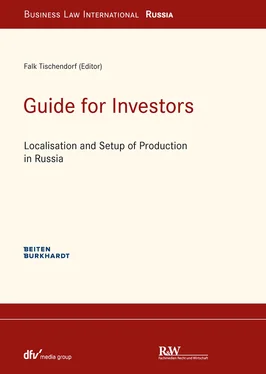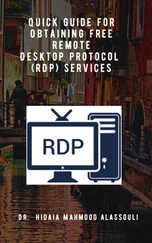Systematic training and the intentional involvement of Russian managers in setting strategic objectives and the decision-making process is a factor capable of generating loyalty and the readiness of local service providers to cooperate. This principle tends not to be considered adequately enough. This relates in particular to companies with the so-called tradition of hiring expats.
5. What are the current trends that should be considered in Russia, in particular in the automotive industry?
Whereas the Western automotive industry has been developing strongly since the 1980s, Russia has during this period focused primarily on systemic and structural changes. Even though international manufacturers took account of the most recent trends in the automotive sector when creating businesses in Russia, against the backdrop of the starting conditions for creating enterprises and the subsequent crises and changes to plans, they found it impossible to adhere to similar international growth rates.
In 1990 a book was published entitled “The Machine That Changed the World”, based on a study conducted by the Massachusetts Institute of Technology (MIT). The authors James Womack and Daniel Jones showed the Western world that Toyota significantly exceeded the world’s entire automotive industry in the optimization of production (“Operational excellence”). Mass production invented by Ford had been replaced by important production principles: perfection, flow, time and pull.
Toyota’s so-called Toyota production system became famous. This production system, also known as “lean manufacturing”, is to this day is a production philosophy and gold standard all over the world. All known manufacturers globally have mastered this system and as a result made giant leaps forwards in terms of efficiency.
However, the wave of lean manufacturing only partly reached Russia. First and foremost, this happened through the international companies working in Russia, which often operate at their plants on the basis of lean manufacturing principles, often under constant monitoring. Apart from the notable exception of some extremely promising pilot projects, the approach is met by a certain level of disbelief at purely Russian companies.
The fact that the world around us is changing significantly at a rapid pace is nothing new for Russia. It is more the rule than the exception. However, now is exactly the time when the world is taking a step toward the next industrial revolution (Kontradieff, Digitalization (I4.0, Internet of things)), which could become a significant advantage for Russia if applied correctly.
In the old world of lean manufacturing companies focused on constantly optimizing their own processes, structures and product range in a stable environment. In general, the lean manufacturing approach implied looking within in order to achieve permanent improvements with a focus on customs and the value stream.
Today every economy, in particular in the automotive industry, has undergone significant change, described best by the so-called “VUCA World”. This is an acronym of the words volatility, uncertainty, complexity and ambiguity. Thanks to its impact, these processes now dictate the new rules of the game for companies and for society.
At the same time, in the VUCA World a lean approach remains the foundation for success and even a necessary component.
In addition, to survive in the VUCA World one must have the following qualities:
– Leadership and organisational culture. At dynamic companies, management does not set hierarchical objectives that are performed by one individual decision-maker at the top. Companies that constantly want to change to achieve success make management and decision-making a team objective. In particular, this relates to the transparency of decision-making criteria, and also clear and open communications. Often this runs contrary to the philosophy in place at the management level of the older generation.
– Flexibility creates the conditions required to prioritize the client’s desires, which are changing more and more rapidly. This only works when taken together with rapid development and production that can rapidly adapt both the actual product and production and distribution volumes in line with changing demand conditions. Quality is a key component, while innovation and speed play a decisive role for continuing success.
– Technological progress (for example, electromobility) provides emerging markets such as China with an opportunity to enter completely new technologies and leapfrog to the top. Leaps in innovation offer an efficiency lever and open up market prospects that did not exist several years ago.
It is highly likely that innovations will not become a category where Russia rapidly assumes a leading position. When it comes to the combination of the actual level of technologies, investment potential and market volume, other competitors enjoy better conditions.
The other qualities required in the VUCA World have been practiced excellently in Russia for a number of years: leadership, mobility and a readiness for constant change.
Combined with the other qualities of production sites in Russia, such as geographical and cultural proximity to Europe, the existence of raw materials, energy and staff, and also an open industrial policy focused on international investments, a picture of the seal of quality “Made in Russia” begins to emerge.
If Russia makes a virtue out of necessity and optimizes through its “young industry” the ability to manufacture products using state-of-the-art automotive technologies (which will exist for many years to come, but will develop more and more in separate niches) in small production volumes flexibly, effectively, economically and at the highest technical level, then Russia will be able to leverage this transformation stage to its benefit and at the same time facilitate the localisation of Russian industry.
The concept of “Made in Russia” is no stranger to the Russian government. It has confirmed its resolve to further develop Russian industry through new billion-ruble programs. Lean manufacturing is also taken into account as part of the Federal Program for Improving Labor Productivity and Supporting Employment.
The Development Strategy for the Export of the Products of the Automotive Industry adopted in August 2017 also has a billon ruble budget and will facilitate in particular an increase in volume and expedite the achievement of international competitiveness.
Even though the government has still not launched a federal program for companies in the spirit of “Russia goes LEAN”, this could happen soon. In any case, the Governor of Kaluga Region announced that a Lean Manufacturing Center would be created together with interested companies as part of the regional program for increasing labor productivity and supporting employment.
Existing VUCA factors will be implemented gradually and systematically in the mindset and actions of companies. Thanks to the implementation of lean manufacturing, standards, structures and production factors will be created that will expand beyond companies to the entire value chain.
This will result in an order where everyone assumes responsibility, so that their own companies and suppliers can become active players in the VUCA World. There are people in Russia today who are laying the framework for tomorrow’s success.
Localisation in Russia – based on personal experience
Oliver Cescotti, Senior Vice President, GEA Group
Over the past few years localisation in Russia is often mentioned together with the import substitution strategy. As a rule two types of import substitution stand out. The first type involves the import substitution of machinery and production processes for the manufacturing of end products; the second type relates to the import substitution of products for the end consumer. To implement the first option, it will take Russia a number of years to close the existing gap with other countries. In addition, it is extremely hard for the country to close this gap in many sectors by relying solely on internal resources. Technological progress proceeds at such speed that in many production sectors it is quite difficult to compete with international production concerns and global market leaders consisting also of German medium-sized “hidden champions”. This is especially true in the mechanical engineering and machine-tool building industries. At the same time, the implementation of the second option appears plausible, as demonstrated by the efforts made over the past three years. After Russia introduced restrictions on the import of specific products (for example, cheese and dairy products) in 2014, Russian manufacturers received an incentive to manufacture substitute products. As a result they began offering “home-made products” instead of the previous imports. This happened thanks to investments in local production facilities.
Читать дальше












